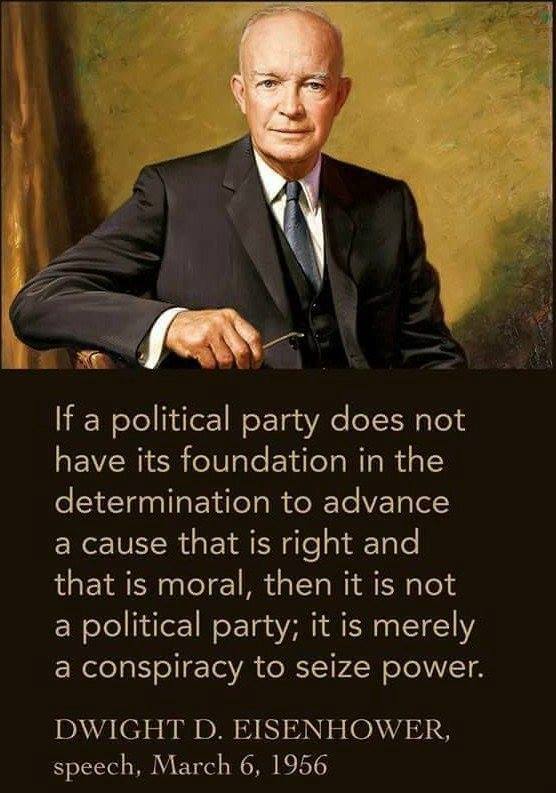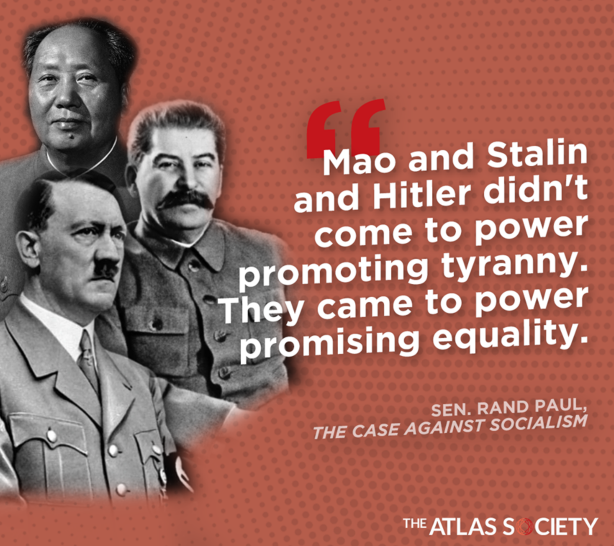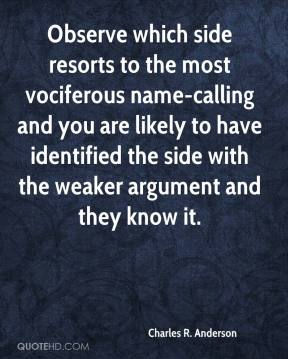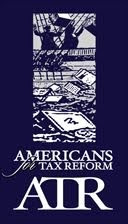05 May 2010
U.S. Effective Corporate Tax Highest in OECD
A new study by Duanjie Chen and Jack Mintz, School of Public Policy, University of Calgary, shows that the U.S. effective corporate tax rate on new investments is the highest among all OECD countries. They studied the effective rate for corporations on new investments, averaging over sub-national rates, such as the U.S. has at state and local levels, and found that only Argentina, Chad, Brazil, India, and Uzbekistan have higher effective corporate tax rates. Japan, which used to be in a virtual dead heat with the U.S., has slightly reduced its effective corporate tax rate.
Our extremely high effective corporate tax rates on new investments are one of the important reasons why our recovery from the recession is painfully slow and U.S. corporations are still not hiring many people. Our tax rates are much higher than the average of the G-7 nations, which are Canada (28.0%), the United Kingdom (27.5%), France (34.4%), Germany (24.4%), Italy (27.2%), and Japan (33.5%). So, only France and Japan have rates nearly as high in the G-7 countries. The German economy exports heavily and has only a 24.4% corporate tax rate compared to our 35.0% tax rate. This gives German corporations a big advantage in competing with us for exports. Sweden used to be the most socialist of the West European countries, but it now has a corporate tax rate of only 19.5%. Switzerland has a rate of only 16.8% and the Netherlands' rate is only 16.3%. China charges its corporations only 16.0%! And why have many U.S. corporations set up companies in Mexico near the border? Well, not only is labor less expensive there, but the corporate tax rate in Mexico is 15.8%.
Israel's rate is 15.1%. Hungary is 13.6%, Poland is 13.6%, Czech Republic is 13.4%, Chile is 13.3%, Ireland is 12.3%, the Slovak Republic is 12.2%, Vietnam is 12.2%, Greece is 12.0%, Croatia is 9.8%, Iceland is 9.6%, Obama's birthplace Kenya is 9.1%, Romania is 8.9%, Singapore is 8.8%, Bulgaria is 4.1%, Latvia is 3.8%, Ukraine is 3.7%, and Belgium is -6.5%. A negative tax rate! Belgium actually subsidizes its corporations, which I do not recommend!
There should be no corporate income tax rate, except zero. Most of the rest of the world has substantially reduced their effective corporate tax rates, but not the U.S. State and local sales and asset-based taxes on capital add about 7% to the U.S. effective tax rate, but only 2% to that rate in other countries. Our federal statutory rate is 35.0%. The broad reductions in the statutory rates of other countries in recent years have not been matched in the U.S., which has responded only with a narrow 2005 tax break for "domestic production activities." In 2009, this shaved about 2% from the U.S. effective rate. Congress did enact some temporary "bonus" depreciations for certain capital investments, which were not included in the U.S. effective rate calculation due to their temporary nature.
In comparison, the average statutory rate in the European Union dropped 9.6% since 2000. Canada, our largest trading partner, cut its federal corporate tax rate from 43% to 31% since 2000. Other taxes were also reduced since then. In 2012, the average statutory corporate tax rate in Canada is going to be 26.4% and the effective rate will be 19.5%! The Canadian economy has been growing better than the U.S. economy for some time now as a result. China has similarly been reducing its corporate taxes.
During the 1980s, the U.S. had more direct investment inflow than outflow. In the 1990s and 2000s, the outflow of investment exceeded the inflow. This slows growth and job creation. As the monthly tables I have been doing on unemployment show, the failure of the U.S. economy to create new jobs, while worse during the current recession, has been going on ever since 2000. The high effective corporate tax rate is a major contribution to this problem in poor job creation.
Another problem with our taxes on corporations is that we tax the overseas operations of multinational corporations. In other countries, the multinational corporations can bring profits home from their out-of-country investments without being taxed on them. Those governments are content to tax that money when it is distributed to the people and when it is spent.
Studies have clearly shown that corporate tax rates above 25% result in tax avoidance behavior that actually reduces government revenues from the taxes. The only reason for tax rates higher than 25% is the appeal to ignorance and the let's-soak-the-fat-cats mentality. It is perfectly clear that if we want to create jobs again and continue to have a rising standard of living, we must reduce the effective corporate tax rate. It is best to reduce the statutory corporate tax rate substantially. A reduction to no more than 25% is badly needed.
Our extremely high effective corporate tax rates on new investments are one of the important reasons why our recovery from the recession is painfully slow and U.S. corporations are still not hiring many people. Our tax rates are much higher than the average of the G-7 nations, which are Canada (28.0%), the United Kingdom (27.5%), France (34.4%), Germany (24.4%), Italy (27.2%), and Japan (33.5%). So, only France and Japan have rates nearly as high in the G-7 countries. The German economy exports heavily and has only a 24.4% corporate tax rate compared to our 35.0% tax rate. This gives German corporations a big advantage in competing with us for exports. Sweden used to be the most socialist of the West European countries, but it now has a corporate tax rate of only 19.5%. Switzerland has a rate of only 16.8% and the Netherlands' rate is only 16.3%. China charges its corporations only 16.0%! And why have many U.S. corporations set up companies in Mexico near the border? Well, not only is labor less expensive there, but the corporate tax rate in Mexico is 15.8%.
Israel's rate is 15.1%. Hungary is 13.6%, Poland is 13.6%, Czech Republic is 13.4%, Chile is 13.3%, Ireland is 12.3%, the Slovak Republic is 12.2%, Vietnam is 12.2%, Greece is 12.0%, Croatia is 9.8%, Iceland is 9.6%, Obama's birthplace Kenya is 9.1%, Romania is 8.9%, Singapore is 8.8%, Bulgaria is 4.1%, Latvia is 3.8%, Ukraine is 3.7%, and Belgium is -6.5%. A negative tax rate! Belgium actually subsidizes its corporations, which I do not recommend!
There should be no corporate income tax rate, except zero. Most of the rest of the world has substantially reduced their effective corporate tax rates, but not the U.S. State and local sales and asset-based taxes on capital add about 7% to the U.S. effective tax rate, but only 2% to that rate in other countries. Our federal statutory rate is 35.0%. The broad reductions in the statutory rates of other countries in recent years have not been matched in the U.S., which has responded only with a narrow 2005 tax break for "domestic production activities." In 2009, this shaved about 2% from the U.S. effective rate. Congress did enact some temporary "bonus" depreciations for certain capital investments, which were not included in the U.S. effective rate calculation due to their temporary nature.
In comparison, the average statutory rate in the European Union dropped 9.6% since 2000. Canada, our largest trading partner, cut its federal corporate tax rate from 43% to 31% since 2000. Other taxes were also reduced since then. In 2012, the average statutory corporate tax rate in Canada is going to be 26.4% and the effective rate will be 19.5%! The Canadian economy has been growing better than the U.S. economy for some time now as a result. China has similarly been reducing its corporate taxes.
During the 1980s, the U.S. had more direct investment inflow than outflow. In the 1990s and 2000s, the outflow of investment exceeded the inflow. This slows growth and job creation. As the monthly tables I have been doing on unemployment show, the failure of the U.S. economy to create new jobs, while worse during the current recession, has been going on ever since 2000. The high effective corporate tax rate is a major contribution to this problem in poor job creation.
Another problem with our taxes on corporations is that we tax the overseas operations of multinational corporations. In other countries, the multinational corporations can bring profits home from their out-of-country investments without being taxed on them. Those governments are content to tax that money when it is distributed to the people and when it is spent.
Studies have clearly shown that corporate tax rates above 25% result in tax avoidance behavior that actually reduces government revenues from the taxes. The only reason for tax rates higher than 25% is the appeal to ignorance and the let's-soak-the-fat-cats mentality. It is perfectly clear that if we want to create jobs again and continue to have a rising standard of living, we must reduce the effective corporate tax rate. It is best to reduce the statutory corporate tax rate substantially. A reduction to no more than 25% is badly needed.
Subscribe to:
Post Comments (Atom)
































































2 comments:
This is an out-and-out lie. These are nominal tax rates. Effective rates (the rate actually paid) in the U.S.is closer to 15% and is lower than Germany, Canada, Brazil, Japan and India. The percentage of taxes paid by corporations has fallen from 23% in the 1950's to less than 8% now. (World Bank data)
http://www.nea.org/assets/docs/CloseLoopholesFirst.pdf
In the study in question, the effective tax rate on new investments was effective in that it had to average the rate over federal, state, and local government jurisdictions with appropriate weighting for the profit amount being taxed in each jurisdiction. This is not the general tax rate, but is that limited to new investment. I had not made this clear and have now edited my original post to make this clear.
The effective rate that Gary gives of about 15% is an effective tax rate in a very different sense and I have heard the figure in discussions lately of only the federal corporate effective tax rate, but I have not found a study that gives that rate. A World Bank report of November 2010 gave the US effective corporate tax rate as 27.6%. A September 2011 report by the Tax Foundation said that the rates given by a number of recent studies indicated an effective corporate tax rate of about 27%. The Tax Foundation report is here: http://taxfoundation.org/files/sr195.pdf
When one is asking why we are having so much trouble recovering from the recession, the critical issue on investment is what is the effective return on investment for that new investment. This is why the study I was discussing in this post is so important, rather than the general effective tax rate on corporations.
Corporation taxes as a percentage of US tax revenues has indeed fallen. The high tax rate and such disincentives as Sarbanes-Oxley accounting requirements are causing the fraction of US commercial enterprises to be organized as corporations to fall. More and more, the profits of commercial activities are reported as personal income and taxed at personal income tax rates. This is why it is important to reduce the higher income tax bracket rates.
Effective corporate tax rates for individual companies vary widely. Some industries are clearly much favored over others by tax breaks. Corporations have to decide what operations they will undertake given the tax consequences and this distorts American business activity very badly. Corporations often waste huge sums of money trying to avoid taxes with legions of accountants and tax lawyers. They miss many business opportunities because some activities are not favored by government tax breaks. This makes American businesses less effective and slows the growth of the economy. Much lower nominal tax rates will allow companies to look more to their customers desires and to their business expenses and less to the expense of supporting governments.
Post a Comment